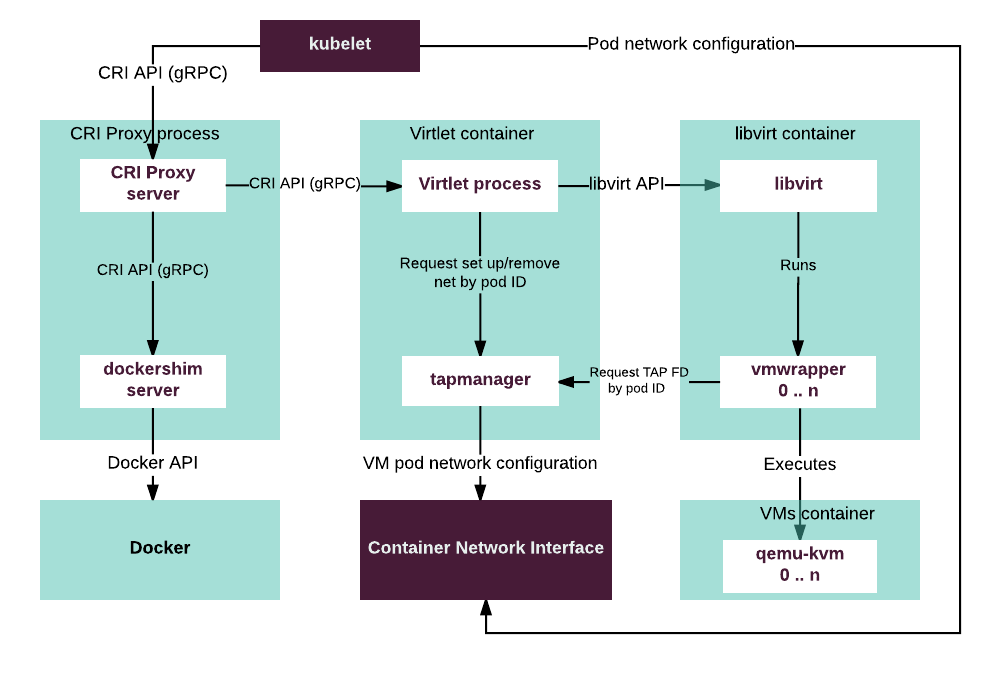Virtual machines as Kubernetes pods
Virtual machines as Kubernetes pods¶
Caution
Kubernetes support termination notice
Starting with the MCP 2019.2.5 update, the Kubernetes component is no longer supported as a part of the MCP product. This implies that Kubernetes is not tested and not shipped as an MCP component. Although the Kubernetes Salt formula is available in the community driven SaltStack formulas ecosystem, Mirantis takes no responsibility for its maintenance.
Customers looking for a Kubernetes distribution and Kubernetes lifecycle management tools are encouraged to evaluate the Mirantis Kubernetes-as-a-Service (KaaS) and Docker Enterprise products.
MCP allows running QEMU/KVM virtual machines as Kubernetes pods using Virtlet.
Virtlet is a Kubernetes Container Runtime Interface (CRI) implementation that is packaged as a Docker image and contains such components as a libvirt daemon, QEMU/KVM wrapper, and so on.
Virtlet enables you to run unmodified QEMU/KVM virtual machines that do not include an additional containerd layer as in similar solutions in Kubernetes. Virtlet supports all standard Kubernetes objects, such as ReplicaSets, Deployments, DaemonSets, and so on, as well as their operations.
Virtlet uses libvirt API to manage virtual machine and translates Kubernetes API primitives into operations over libvirt.
The following diagram describes the Virtlet components and interactions between them.

Virtlet includes the following components:
- Virtlet manager that implements CRI interfaces for virtualization and image handling
- A libvirt instance
- Virtlet tapmanager that is responsible for managing a VM networking
- Virtlet vmwrapper that is responsible for preparing environment for an emulator
- An emulator (QEMU with KVM support and with a possibility to disable KVM)
- Container Runtime Interface (CRI) Proxy that provides the ability to mix containerd and VM-based workloads on the same Kubernetes node
The image service provides VM images accessible through HTTP in a local cluster environment. It is only used as an optional helper because Virtlet manager can pull images from any HTTP server accessible from the node.